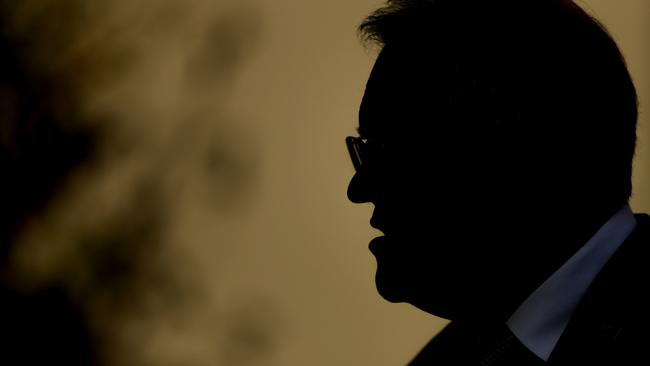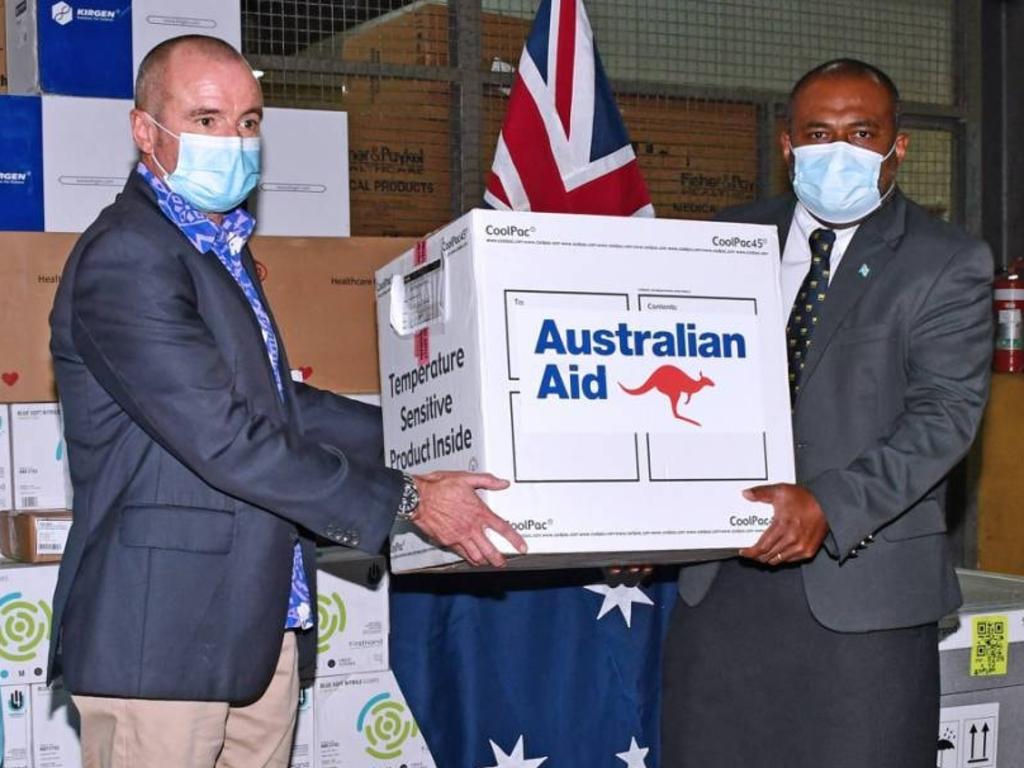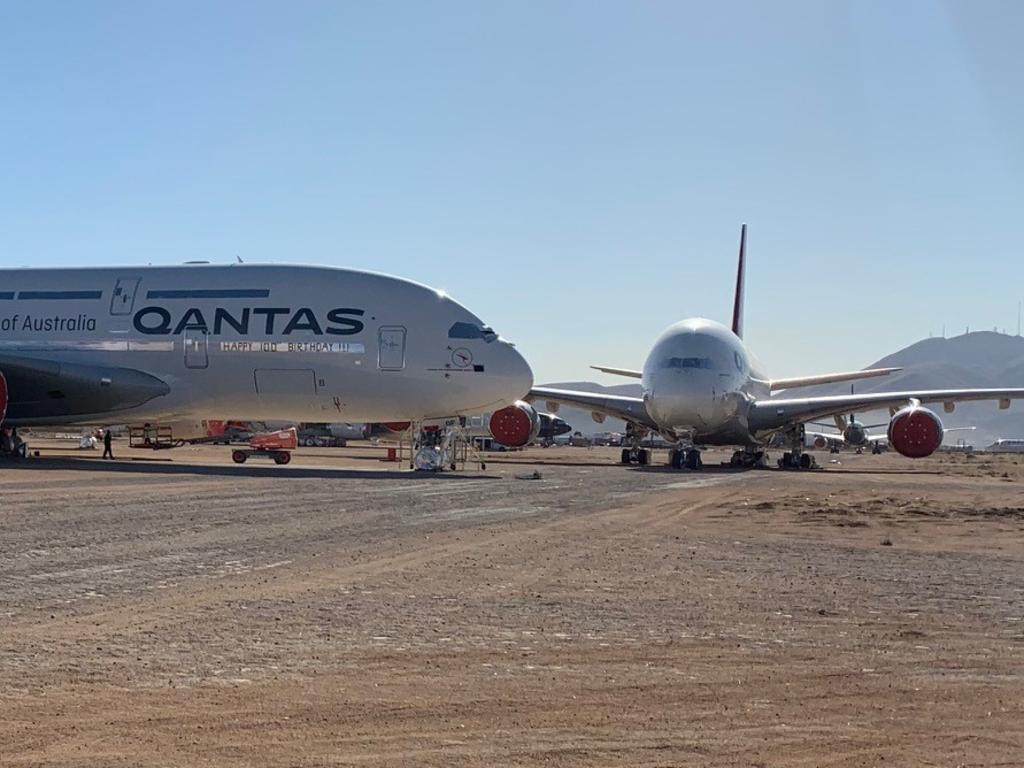Enough time for PM to avoid vax backlash
Has the federal government botched the vaccine rollout? Take a deep breath if you unequivocally assume it has.

This is the all-important question that may decide the next election. The answer is naturally highly subjective. It also is not that simple. We don’t know the final answer just yet.
For example, whatever the failures have been to date, if the number of Australians fully vaccinated edges north in the coming months, voters might judge success or failure very differently to how they would right now.
With the election not due until well into next year, the Coalition has time on its side. As long as public confidence doesn’t plummet first. Opponents of Scott Morrison will never be won over by excuses for less than ideal outcomes so far.
But the mainstream doesn’t hate the way partisans on both sides of the ledger do.
Last weekend I asked Senate leader Simon Birmingham if the government had its time again would it have done things differently. He gave an unusually candid answer: Of course it would have, he said, noting that he was big enough to admit that.
Who knew that blood clots would change the advice on AstraZeneca? Who knew that demand for Pfizer in countries struggling with Covid-19 would put our supplies in jeopardy?
Hindsight is always easy, but being big enough to admit mistakes is not something the Prime Minister likes to do. He worries about political opponents using the admission against him. He sees it as a sign of weakness. Nuance isn’t Morrison’s strong suit. This week, when he emerged to front the media, he went on the front foot, defending the rollout.
So where does the truth lie? Certainly not where Malcolm Turnbull firmly tried to place it midweek with his claims that the vaccine rollout represented the biggest public policy failure in Australian history. If that is the case then the lucky country really has been lucky. Because more than 30 per cent of eligible Australians have received their first vaccine dose, and just over 10 per cent are fully vaccinated in a country where Covid is virtually non-existent compared with elsewhere in the world.
That isn’t too bad, especially when you consider all the reasons vaccination rates haven’t been higher, as well as all the reasons they now are growing exponentially. For example, all those over-50s and 60s who had their first AstraZeneca vaccine many weeks ago have had to wait the mandatory 12 weeks for their second dose. That has made our vaccination rate on second doses look much worse compared with countries reliant on mRNA vaccines with a three-week wait between doses.
When Australia decided to purchase vaccines, long before Therapeutic Goods Administration approvals were in place, doing so was a gamble. Fortunately, unlike other parts of the world, we didn’t need to start injecting unapproved vaccines into people’s arms because Covid wasn’t out of control here. That reality is the primary reason other nations have vaccinated more of their population than we have.
The Australian government put most of its eggs in two baskets: the University of Queensland vaccine and the Oxford University-AstraZeneca vaccine. Both used well-honed vaccine technology, not the new mRNA technology on which Pfizer and Moderna are based. And both could be manufactured locally when mRNA couldn’t be.
This made sense because Australia didn’t have the capacity to produce mRNA vaccines, like everywhere else outside of the US and EU. Unfortunately, the UQ vaccine fell over in trials, but who could seriously criticise the Prime inisterM for choosing to buy Australian? If he hadn’t, he certainly would have been condemned.
As for the AstraZeneca vaccine, even though it is being rolled out right across our region and it saved Britain from the worst of the pandemic, there is a one in a million chance that it can cause death via blood clots. So the medical advice was to give it only to the over-60s, unless the under-60s gave informed consent. People seem to forget that advice reflects how well Australia has done avoiding the worst of Covid. The reason the age-based risk profile is lower or non-existent in other countries is because Covid is rife.
But let’s be clear about this: the messaging around AstraZeneca’s risks has been beyond bad. And Team Morrison must own that failure. But at a substantial level, if the whole country had been vaccinated with AstraZeneca, on the numbers there might have been two dozen blood-clot deaths in total. Hardly a disaster when the US has suffered hundreds of thousands of deaths from Covid.
In the here and now we need to rely on Pfizer and eventually Moderna vaccines to fully vaccinate the population. There aren’t enough at the moment, but there will be. A lack of supply has slowed the rollout. But guess what? We can handle it because, unlike other countries thoroughly ravaged by Covid, we have done well. If we were a basket case like other nations are, supply would have been increased. We have been getting bumped because of need elsewhere.
Critics of Morrison like to point to much higher vaccination rates in nations such as the US and Britain. But Australia didn’t need to fast-track approval of vaccines like they did because Covid tore through their populations.
When you look at how countries that managed the pandemic as well as we have are going with their rollouts, suddenly we don’t look like laggards. New Zealand is well behind us on first doses; so is Taiwan. Japan is doing roughly as well as we are, South Korea only slightly better. Canada has surged ahead, but it has used its proximity to the US to demand Pfizer and Moderna vaccines in a way we haven’t. Perhaps Australia should use our alliance to similar effect?
By the time the next election rolls around the vaccine rollout will be much more advanced. And it is unlikely that deaths from Covid will have increased substantially, notwithstanding the Sydney lockdown.
Morrison will be able to use that likely outcome to his political advantage, referencing back to a pandemic Australia managed better than the rest of the world, an economic downturn we recovered from more quickly than elsewhere, and (eventually) a vaccine rollout that did its job.
Incumbency has its advantages and the Prime Minister is about to use every single one of them to help him graft a fourth term in power for the Coalition.
Peter van Onselen is a professor of politics and public policy at the University of Western Australia and Griffith University.







Has the federal government botched the vaccine rollout? Take a deep breath if you unequivocally assume it has, because that is hyperbole. It’s also premature.